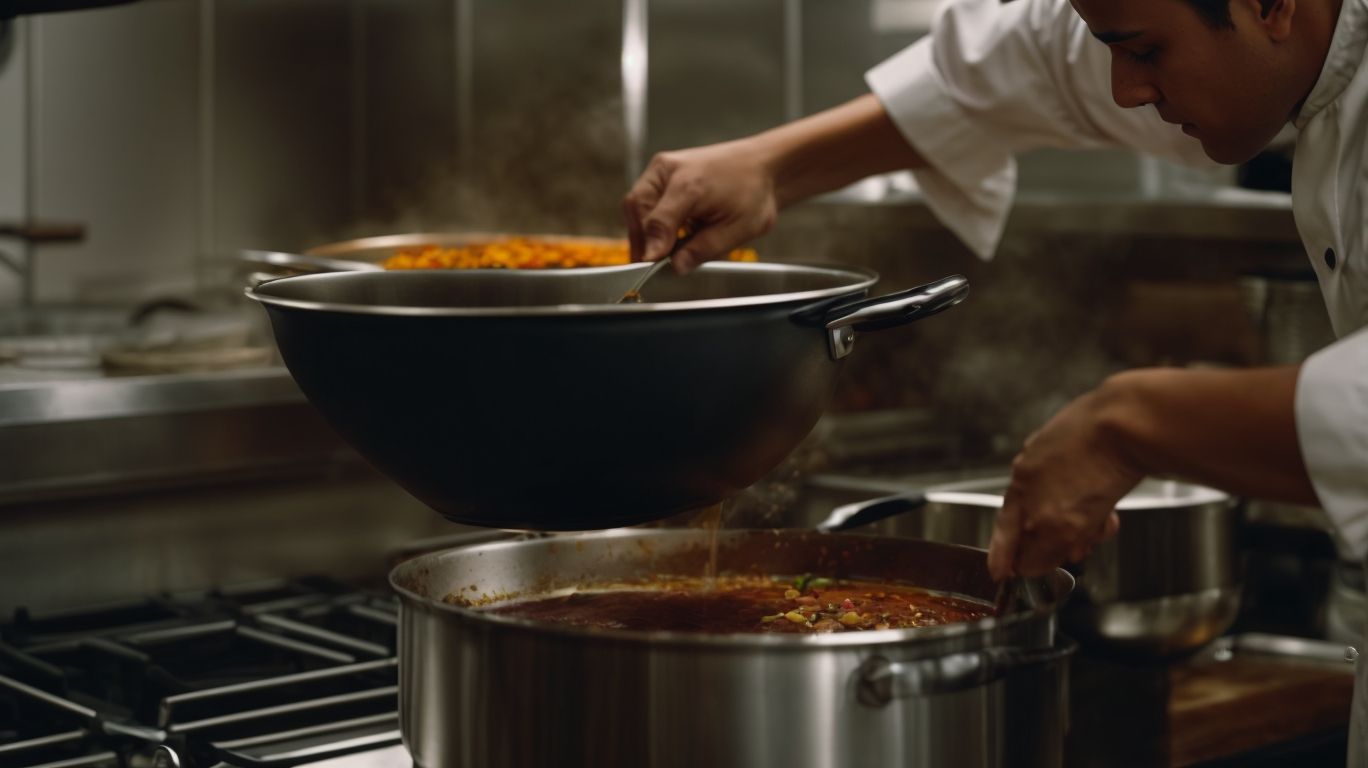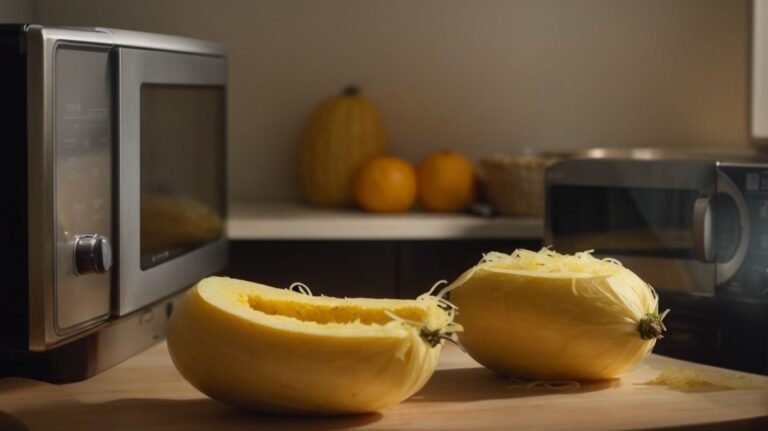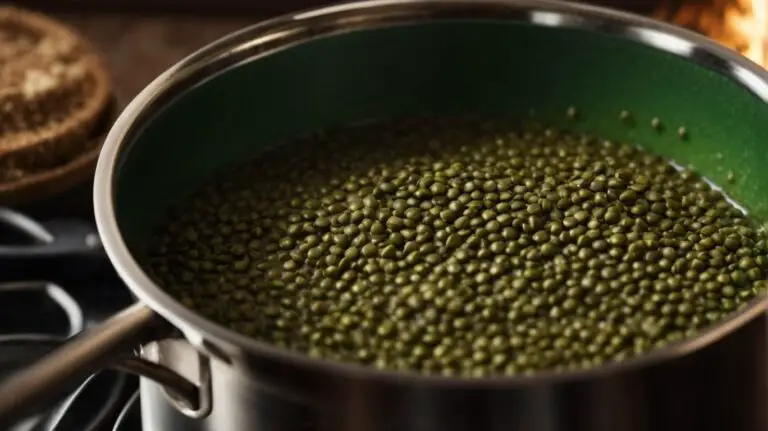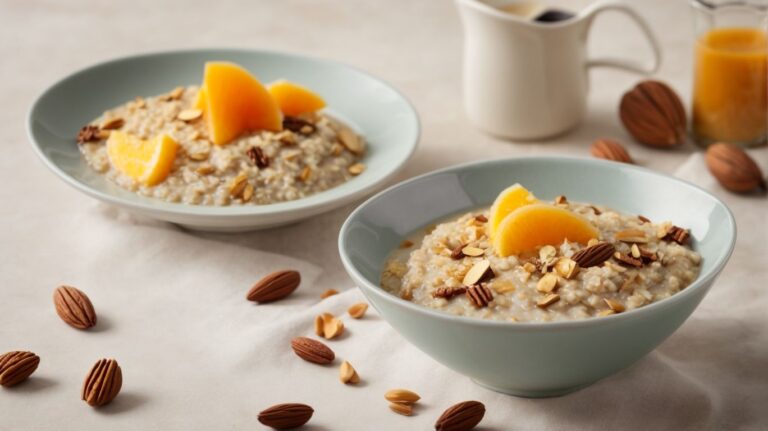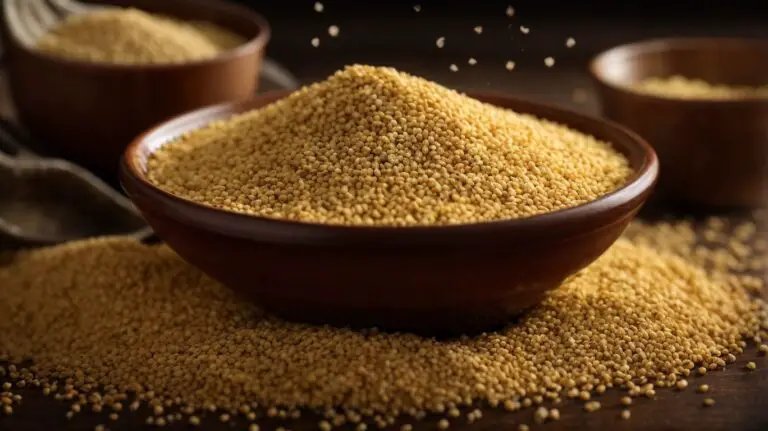How to Cook Marinade Into Sauce?
Are you looking to take your cooking skills to the next level?
Discover the world of marinade and sauce, two essential components in enhancing flavors in your dishes.
We discuss what marinade is, common ingredients, and how it enhances flavors.
Delve into the differences between marinade and sauce, how to turn marinade into sauce, tips for cooking with marinade-turned-sauce, and share some delicious recipes for you to try.
Learn how to elevate your dishes with marinade turned into sauce!
Key Takeaways:
What is Marinade?
Marinade is a seasoned liquid mixture used to soak meats, vegetables, or fish before cooking to enhance flavor and tenderize the food.
This process allows the meat or vegetables to absorb the flavors of the seasonings, herbs, and spices in the marinade, resulting in a more flavorful end product. The liquids in the mixture also work to break down the proteins in the food, making it more tender and juicy when cooked.
Safety guidelines recommend marinating in the refrigerator to prevent bacterial growth, while heat application, such as grilling or roasting, further enhances the flavors and textures imparted by the marinade. A well-crafted marinade can truly elevate the taste of a dish, turning a simple meal into a culinary delight.
What Are the Common Ingredients in Marinade?
Common ingredients in marinade include acidic components like citrus juices or vinegar, sugars for caramelization, spices for flavor enhancement, and liquids such as soy sauce or oil for moisture.
Acidity in marinades not only adds a tangy kick but also helps tenderize meat by breaking down proteins. Sugars serve a dual purpose – they caramelize on the grill, creating that charred exterior, and balance out the acidity. Spices like garlic, herbs, and peppercorns provide depth and complexity to the flavors. Popular ingredients for marinades range from Worcestershire sauce and mustard to honey and ginger. It’s crucial to marinate meat in the refrigerator to prevent bacterial growth, and dispose of marinade ingredients properly to avoid cross-contamination.
How Does Marinade Enhance Flavors?
Marinades enhance flavors by infusing meats with a blend of seasonings, spices, and liquids that penetrate the surface, resulting in a depth of taste and aroma when cooked.
When meat interacts with the ingredients in a marinade, the acids help tenderize the protein fibers, while the sugars caramelize during cooking, adding a delightful crust. The marinating time is crucial; a longer duration allows for deeper flavor absorption, but acidic ingredients like vinegar or citrus can start to “cook” the meat if left too long, compromising texture. To ensure optimal taste and safety, marinate in the refrigerator, not at room temperature, and discard leftover marinade that has come into contact with raw meat to prevent cross-contamination.
What is Sauce?
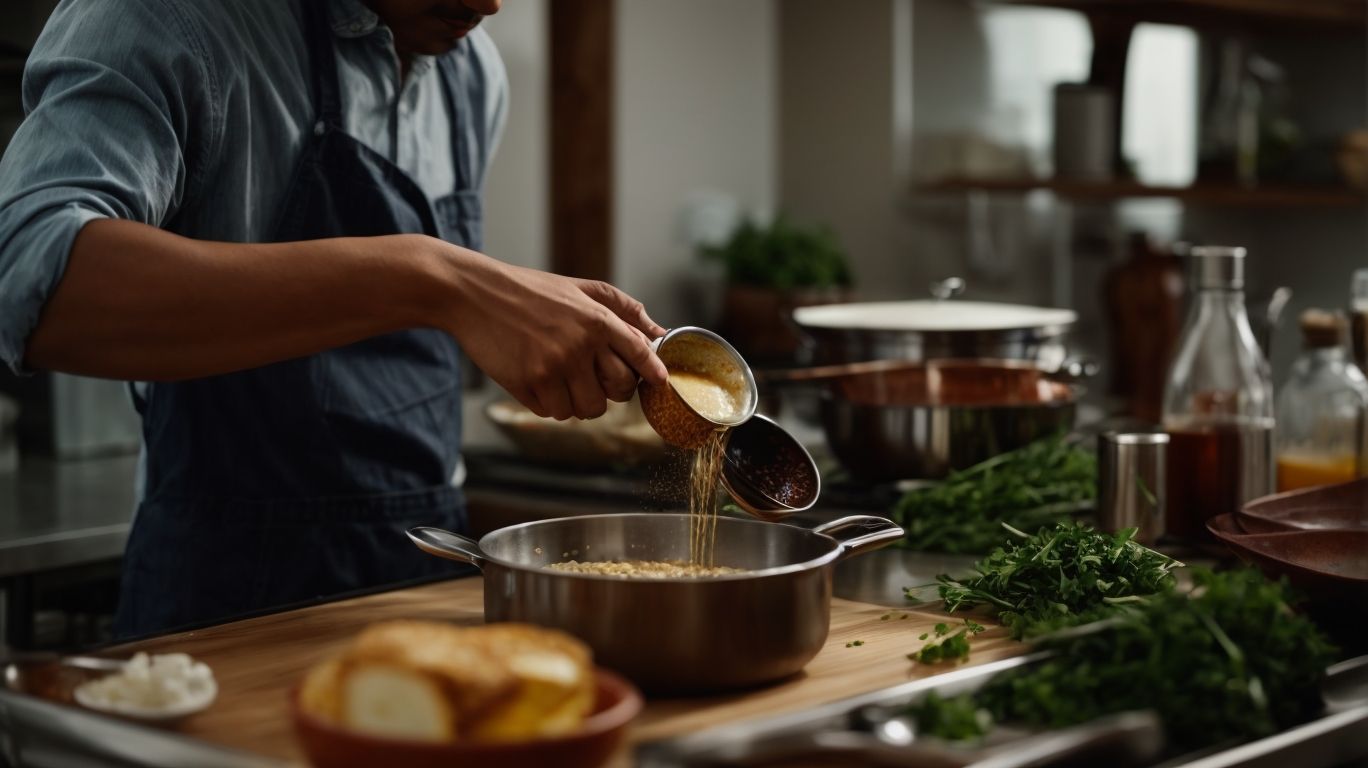
Credits: Poormet.Com – Brandon Harris
Sauce is a flavorful liquid or semi-solid condiment served with food to add moisture, taste, and visual appeal to the dish.
It plays a crucial role in culinary creations by enhancing the overall dining experience through a harmonious blend of flavors. Achieving the perfect sauce involves a delicate balance of heat, acidity, and other elements to complement the main ingredients in a dish. From smooth creamy textures to chunky and robust consistencies, sauces come in various forms to elevate the dish’s flavor profile. They not only add depth and richness but also help in tying the different components of the meal together, enhancing the overall presentation and visual appeal.
What Are the Differences Between Marinade and Sauce?
Marinade differs from sauce in its purpose and application; while marinades are used to season and tenderize foods before cooking, sauces are typically added during or after cooking to enhance the dish’s flavors.
Marinades work by incorporating flavors into the food item, often utilizing acidic ingredients like vinegar or citrus juices which break down proteins, making the meat more tender.
In contrast, sauces serve to complement or provide contrast to the dish’s existing flavors, offering richness, tanginess, or sweetness depending on the recipe.
According to the USDA guidelines, marinades should be discarded after being in contact with raw meat to prevent contamination, while sauces can be safely heated to kill any harmful bacteria.
How Can Marinade Be Turned into Sauce?
Marinade can be transformed into a sauce by thickening it with a roux, reducing it to concentrate flavors, adding cream or butter for richness, or using cornstarch slurry as a thickening agent.
Each method brings about distinctive changes in the sauce’s overall profile.
- Thickening with a roux imparts a velvety texture and rich mouthfeel, ideal for hearty dishes like stews.
- Reducing the marinade intensifies the flavors, creating a more concentrated taste that elevates the dish’s complexity.
- Incorporating cream or butter adds depth and luxuriousness, perfect for creamy sauces accompanying poultry or seafood.
- Utilizing a cornstarch slurry ensures a glossy finish and a lighter consistency, great for delicate dishes that require a subtle sauce presence.
Thickening with a Roux
Thickening a marinade into a sauce with a roux involves cooking equal parts of flour and fat to create a thickening agent that adds body and richness to the liquid.
When making a roux to thicken a marinade, the flour and fat combination acts as a binding agent, absorbing flavors and ensuring a smooth consistency in the sauce. The choice of fat, whether butter, oil, or other alternatives, can influence the final taste profile, while the flour helps in achieving the desired thickness.
To avoid the raw flour taste in your sauce, it is crucial to cook the roux for a few minutes until it reaches a golden hue, eliminating any starchy flavor. This cooking process not only enhances the flavor but also ensures that the thickening agent blends seamlessly with the marinade, resulting in a harmonious sauce.
Reducing the Marinade
Reducing a marinade involves simmering it over low heat to evaporate excess liquid and intensify flavors, creating a concentrated sauce ideal for drizzling or glazing.
During reduction, the liquid in the marinade gradually evaporates due to the application of heat, reducing the overall volume and increasing the concentration of flavors. It is crucial to maintain a gentle simmer to prevent scorching and ensure even evaporation. By controlling the temperature carefully, you can gradually thicken the sauce while preserving the complex flavors developed during marination.
Adding a Cream or Butter
Incorporating cream or butter into a marinade can transform it into a rich and velvety sauce, adding depth and a luxurious mouthfeel to the dish.
When cream is added to a marinade, its inherent richness creates a smooth and luscious texture that coats each bite, resulting in a decadent dining experience.
Similarly, the introduction of butter brings a nutty flavor and a creamy consistency, enhancing the overall complexity of the sauce.
The fat content in both cream and butter helps bind the flavors together, ensuring a harmonious blend of sweet, salty, and tangy notes in the final sauce.
Using a Cornstarch Slurry
Creating a cornstarch slurry by mixing cornstarch with water and adding it to a marinade helps thicken the liquid, resulting in a glossy and slightly transparent sauce.
When cornstarch is introduced to a liquid, it acts as a thickening agent due to its ability to absorb water and create a gel-like consistency. The process of making a slurry involves dissolving cornstarch in cold water before adding it to a hot liquid to prevent clumping. This method ensures a smooth texture in the sauce without any lumps. The slurry should be stirred continuously while pouring it into the marinade to evenly distribute the thickening effect. The resulting sauce will have a velvety finish and cling perfectly to the ingredients.
Tips for Cooking Marinade into Sauce
When cooking marinade into sauce, it is essential to use high-quality marinades, adjust seasonings as needed, and experiment with different thickening agents to achieve the desired consistency and flavor profile.
High-quality marinades can elevate the overall taste and richness of your sauce, so opt for fresh ingredients and avoid artificial additives whenever possible. Flavor adjustments are key in transforming a marinade into a well-balanced sauce. Taste your concoction as you cook, and don’t hesitate to add a pinch of salt, a dash of spice, or a squeeze of citrus to enhance the flavors.
In terms of thickening agents, you have a plethora of options to experiment with, such as cornstarch, flour, arrowroot, or even pureed vegetables. Each thickening agent can lend a unique texture and mouthfeel to your sauce, so don’t be afraid to test different methods until you find the perfect one for your dish.
Use a High-Quality Marinade
Start by using a high-quality marinade made from fresh ingredients to ensure a robust flavor base for your sauce, enhancing the overall taste of the dish.
When crafting a sauce, selecting the right marinade can make all the difference in elevating the dish to a whole new level. Fresh ingredients not only contribute to the flavor profile but also intensify the taste with their vibrant essence.
One key aspect to consider is the impact on the sauce’s safety. Premium marinades often contain high-quality components, reducing the risks associated with using lower-grade options. This ensures that your dish not only tastes great but is also safe to consume.
By incorporating top-notch ingredients into your marinade, you are setting the foundation for a sauce that bursts with flavors, taking your culinary creations from ordinary to extraordinary.
Adjust Seasonings as Needed
Taste the sauce as it cooks and adjust seasonings such as salt, pepper, or additional spices to achieve a balanced and flavorful taste profile that complements the dish.
As you make these adjustments, remember that a little goes a long way when it comes to seasoning; you can always add more, but it’s challenging to correct an overly seasoned dish.
Focus on enhancing the natural flavors of the ingredients by gradually adding small amounts of seasoning, tasting in between each addition to ensure you achieve the desired taste.
Experiment with different herbs and spices to find the perfect combination that elevates the overall flavor profile without overpowering the dish.
Experiment with Different Thickening Agents
Explore various thickening agents like roux, cornstarch, or cream to find the ideal texture and consistency for your sauce, adapting the method based on the desired end result.
Each thickening agent brings its unique qualities to the sauce, affecting not only the final texture but also how flavors are absorbed. Roux, a classic French technique of equal parts butter and flour, creates a rich, velvety sauce perfect for hearty dishes. On the other hand, cornstarch, a gluten-free option, offers a translucent appearance and a glossy texture, ideal for Asian-inspired sauces. Cream adds a luxurious richness and smoothness to sauces, commonly used in indulgent dishes like Alfredo.
Experiment with these agents to elevate your culinary creations and discover how each can enhance the overall experience of your dish.
Recipes for Cooking Marinade into Sauce
Try these delicious recipes for turning marinades into delectable sauces: Grilled Chicken with Honey Mustard Sauce, Teriyaki Salmon with Ginger Soy Glaze, and BBQ Pork Ribs with Tangy BBQ Sauce.
Grilled Chicken with Honey Mustard Sauce is a juicy and flavorful dish that starts with a simple marinade of honey, mustard, and herbs, then transforms into a rich, creamy sauce that pairs perfectly with the tender chicken.
For the Teriyaki Salmon with Ginger Soy Glaze, marinate the salmon fillets in a mixture of soy sauce, ginger, and garlic. After grilling, brush with a glaze made of teriyaki sauce and honey, creating a sticky and savory coating.
BBQ Pork Ribs with Tangy BBQ Sauce involves slow-cooking the ribs in a marinade of spices and barbecue sauce, then finishing them off with a tangy BBQ sauce that caramelizes beautifully on the grill.
Grilled Chicken with Honey Mustard Sauce
Indulge in the succulent flavors of Grilled Chicken with Honey Mustard Sauce, a tantalizing dish that combines tender grilled chicken with a sweet and tangy sauce.
Begin by marinating the chicken in a flavorful blend of olive oil, garlic, herbs, and a sprinkle of salt and pepper to enhance its natural taste. Preheat the grill to achieve those beautiful char marks, ensuring the chicken is cooked to perfection. As the chicken sizzles on the grill, the irresistible aroma will start to fill the air.
While the chicken cooks, prepare the Honey Mustard Sauce by mixing honey, Dijon mustard, mayonnaise, and a touch of lemon juice. The combination of sweet, savory, and tangy flavors in the sauce complements the smoky char from the grill, creating a symphony of tastes in every bite.
Teriyaki Salmon with Ginger Soy Glaze
Savor the umami-rich Teriyaki Salmon with Ginger Soy Glaze, featuring succulent salmon fillets coated in a luscious marinade-turned-sauce infused with Asian flavors.
Teriyaki Salmon with Ginger Soy Glaze is a delightful fusion of sweet and savory elements, showcasing the vibrant interplay between soy, ginger, and a hint of sweetness from brown sugar. The tender salmon absorbs the flavors beautifully, creating a harmonious balance.
The key to this dish lies in the marinade preparation; allowing the salmon to soak up the flavors ensures a burst of taste in every bite. The caramelization of the glaze adds a subtle depth to the dish, enhancing the overall dining experience.
BBQ Pork Ribs with Tangy BBQ Sauce
Delight in the finger-licking goodness of BBQ Pork Ribs with Tangy BBQ Sauce, a crowd-pleasing dish featuring tender ribs coated in a zesty marinade transformed into a lip-smacking barbecue sauce.
Slow-cooked to perfection, these ribs are a tantalizing blend of tender meat and rich, smoky flavors that will leave your taste buds craving more. The key to achieving that perfect BBQ texture is the slow and low cooking method, allowing the flavors to develop and the meat to become fall-off-the-bone tender.
When it’s time to glaze the ribs, apply a generous amount of the tangy BBQ sauce, ensuring each rib is evenly coated, creating a delightful caramelized finish that enhances the overall taste sensation. The aroma of the sizzling sauce as it caramelizes on the grill is enough to make anyone’s mouth water.
Conclusion: Enhance Your Dishes with Marinade Turned into Sauce
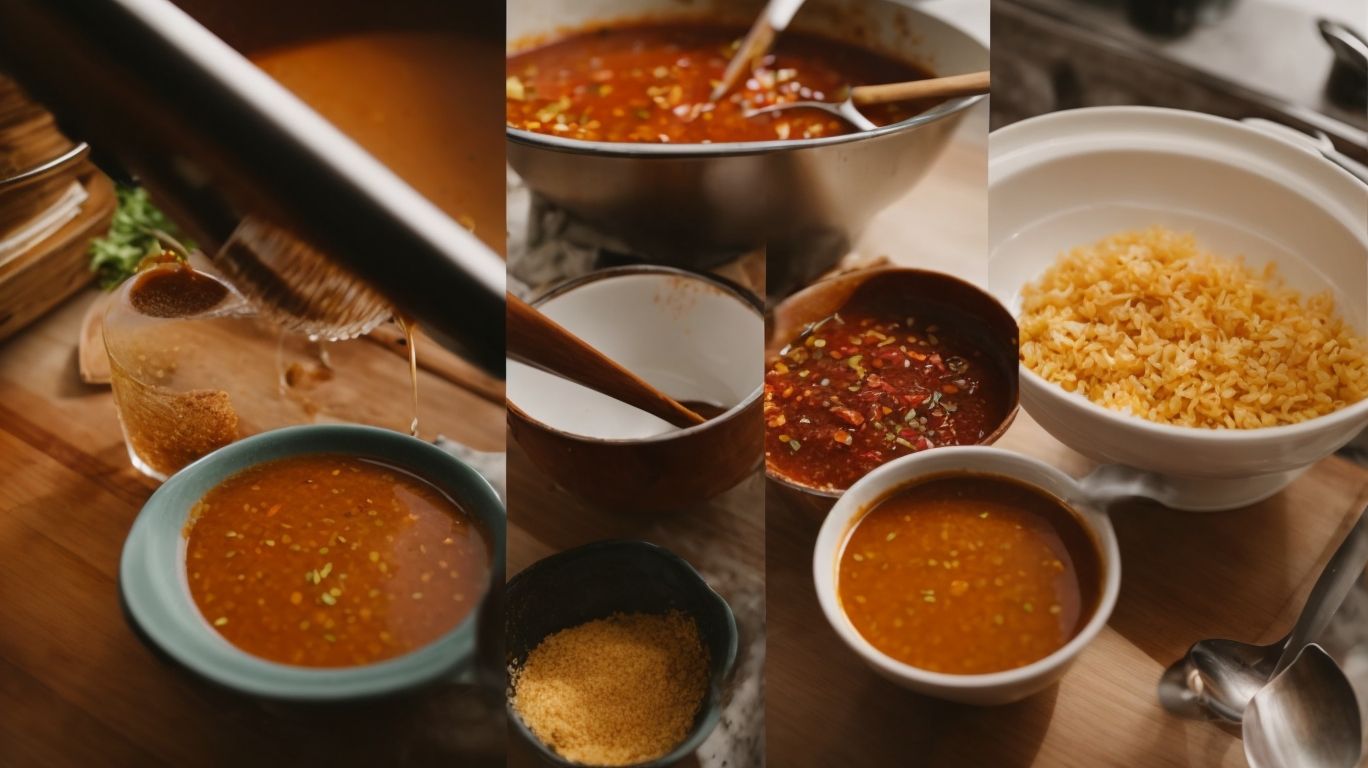
Credits: Poormet.Com – Randy Perez
Transforming marinades into flavorful sauces adds a new dimension to your culinary creations, elevating the taste, texture, and visual appeal of your dishes with a creative touch.
This method not only brings versatility to your cooking repertoire but also enhances the overall flavor profile by infusing your dishes with concentrated tastes. When you incorporate these sauces into your recipes, they not only amp up the taste but also provide a beautiful gloss and sheen that elevates the visual appeal, making your dishes irresistible to both the eyes and the palate. The art of converting marinades into sauces truly showcases your culinary creativity and allows you to experiment with a wide range of flavors.
Frequently Asked Questions
How do I cook marinade into sauce?
Cooking marinade into sauce is a simple process that involves heating the marinade on the stove until it thickens and becomes sauce-like in consistency.
Can I use any type of marinade to make a sauce?
Yes, you can use any type of marinade to make a sauce. However, it is recommended to use a marinade that complements the dish you are preparing.
What temperature should I cook the marinade at?
The temperature you should cook the marinade at depends on the type of marinade and the recipe you are following. In general, a medium heat is recommended for cooking marinade into sauce.
How long does it take to cook marinade into sauce?
The time it takes to cook marinade into sauce can vary, but on average it takes about 10-15 minutes. Keep an eye on the marinade as it cooks and stir frequently to prevent burning.
Can I add other ingredients to the marinade while it is cooking?
Yes, you can add other ingredients to the marinade while it is cooking to enhance the flavor and texture of the sauce. Just make sure to adjust the cooking time accordingly.
Is it necessary to strain the marinade before cooking it into a sauce?
Straining the marinade before cooking it into a sauce is not necessary, but it can help remove any large chunks of herbs or spices that may have been used in the marinade. This will result in a smoother sauce.

